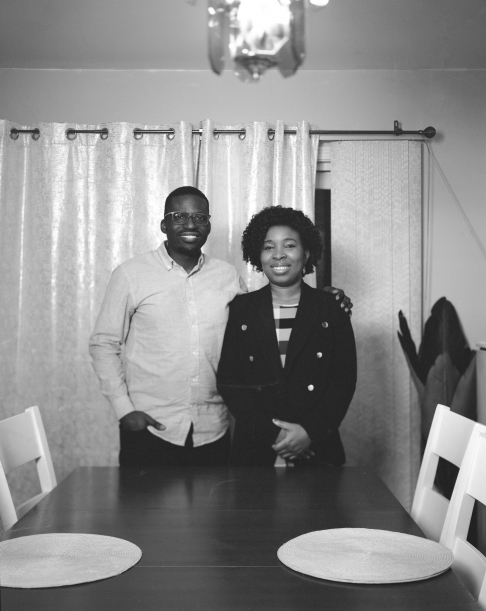

I'm not a typical migrant in that sense, right, because I was actually born here. But I moved back to Nigeria when I was three with my parents. That's where I grew up. I'm Nigerian in every sense. Yeah. That's where my identity really comes from. I came back at 19 years old. And for me, it was coming back to study. When my parents moved back, things didn't quite play out.
My dad said he just wanted to move back home. But, you know, if you were to ask my mom, you know, it seemed like it was a strange return back home, right? Because it was sudden. Even though they knew they wanted to move back home, he just suddenly said, all right, well, we're all moving. We're Christians here, right? So you understand, some things are not all just physical here. Because it seemed the way they just left everything behind, it wasn't a proper departure or return. So, they got home and couldn't find a job.
Lekan.
Mutating Origins: Diaspora’s Struggle to Belong Home and Away
Adeyemi Adebayo | Massachusetts, United States
Photographer: Adeyemi Adebayo
Exhibit Title: Mutating Origins: Diaspora’s Struggle to Belong Home and Away
Location: Massachusetts, United States
Mutating Origins is a photography series that explores the experiences of African migrants as they navigate and adopt new geographic, cultural and socioeconomic realities as well as their changing relationships with the concept of home and their place of origin. The work explores the severance from the place of origin and the transplantation of home and how migrants navigate the mutating ideas of home and belonging. It interrogates and reflects on what's lost and what’s carried over to the new place of abode, and expounds on post-migrant identities and their relationship with home, blackness, race, and Afro-pessimism.
The project is a counter-narrative of the experiences of first-generation black African migrants that combines photography and oral storytelling to subvert the popular construct of post-migrants as contributors to housing problems, health problems, and criminal problems in society.
In my work, I explore man and his environment, loneliness, age, migration, strife, and the notions of home. I am interested in photography alongside other art forms as a means to evaluate moods and dispositions critically, both in the presence of bodies and the potential absence of, as they undergo subjugation, injustice, prejudice, and exploitation, or simply as they migrate. I'm also interested in the place of photography as a means of dialogue with our environment and Anthropocene, as well as archival work in African photography.
adeyemiesq@gmail.com
+14133150816
Make Comment/View Comments